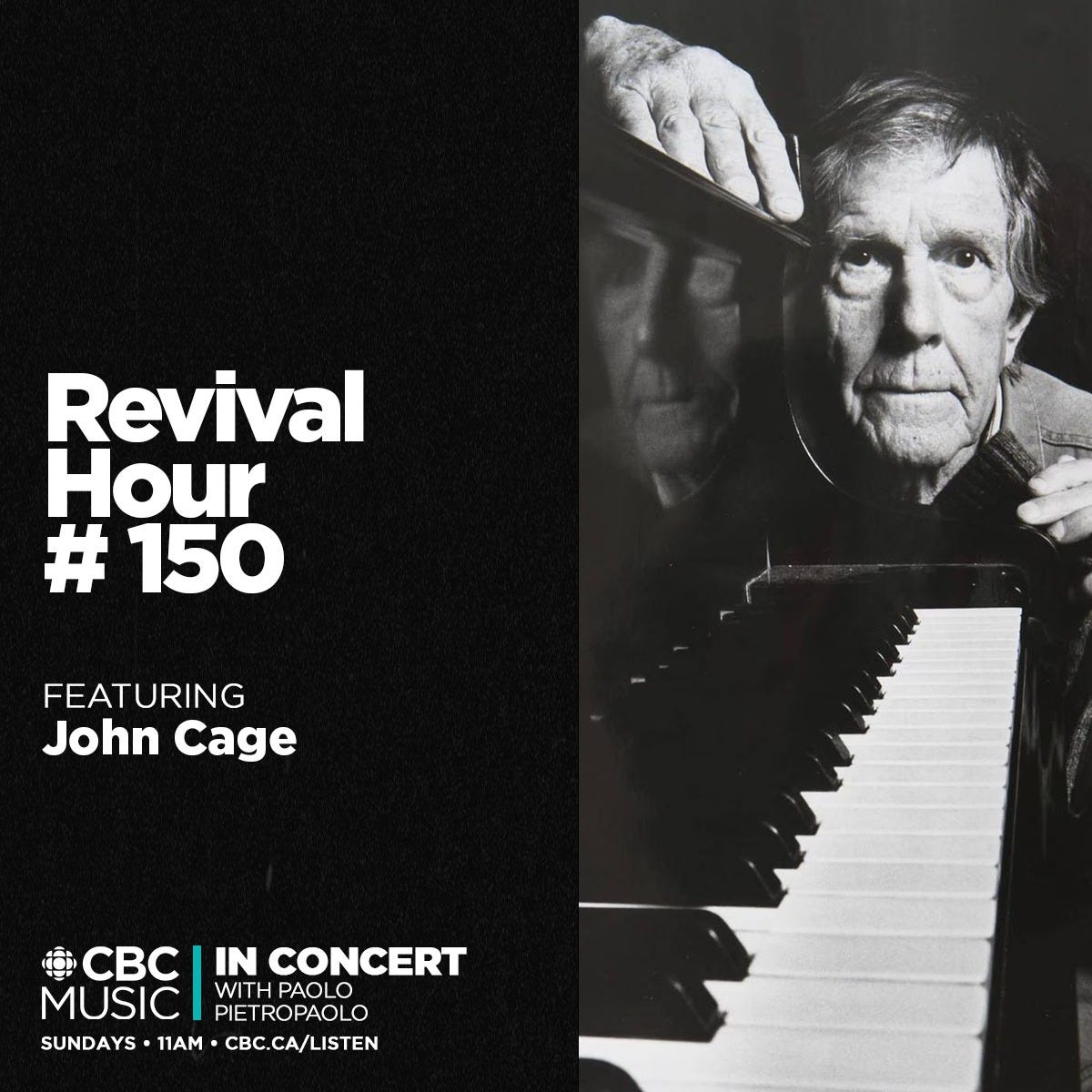Lecture for an Empty Room
In which I speak briefly of John Cage,
As part of an episode of CBC Radio’s The Revival Hour that focused on the lesser-known work of composer John Cage, host Paolo Pietropaolo spoke of Cage answering his own question—“Why do we write music?”—in his volume Silence (1961). To paraphrase: it wasn’t to make order out of chaos, but to allow for a particular kind of attention. Cage wasn’t working as a provocateur, but instead, someone deeply devoted to sharing an attention to sound itself, and broadening the possibilities of what one might consider music. It’s an interesting distinction, and one that provides my own follow-up to that particular thread: Why do we write, and what are we, as writers, seeking to accomplish? Writing and music have overlap in purpose, but are not the same. Writing is seen as communicative, but not all writing aims for the same goals. A novel by Michael Ondaatje, for example, is not aiming for the same purposes as an instruction manual, a sound poem, a movie script, a visual poem, or a biography of Queen Elizabeth I. Or even, one might say, a novel by Bobbie Louise Hawkins vs. a novel by Fawn Parker, or the short stories of Etgar Keret. The variations seem endless.
Why do we write? To make sense of it all. To inform, reclaim, resist or question. To play with sound, meaning, shape. To offer notion for performance or articulate purpose. To do something else entirely. Words can’t help but mean, but occasionally, the writing specifically works to trouble, thwart or counterpoint that very purpose. Why do we write?
There were the stories and poems I sketched as a child, surrounded by mounds of books from library visits, a reading that soon shifted into a sprawling collection of issues of The Amazing Spider-Man and other Marvel titles. The script I sent to Marvel as a mid-teen, returned from their New York offices with a kind rejection.
I remember being deeply disappointed when Bravo stopped airing Inside the Actor’s Studio. To listen to Alec Baldwin, Laura Linney or Mike Myers talk about craft provided so much insight, and these were conversations I recognized, offering me much to consider about how to approach both writing and reading.
During his episode, Mike Myers described himself as a “site-specific extrovert,” an observation I found both curious, and familiar. Or to paraphrase Alec Baldwin, discussing his approach to being hired for a job: a plumber would never say “I wouldn’t dream of putting a sink there.”
As part of her interview in The Paris Review (spring 2023), Nobel Prize-winning Polish novelist Olga Tokarczuk offered something I thought was interesting, although I’m still working through whether or not I agree with it:
I have a theory that people who don’t read much before the age of fourteen never fully develop areas in the brain that process text into images or experiences. If you become a serious reader only in college, you interpret everything analytically. I sometimes see this in academic circles—they’re so intelligent, and yet, something eludes them.



The phrase "to allow for a particular kind of attention" struck a chord with me. This helps in my quest to answer a non-writing friend's question "What makes it poetry?". Many thanks!
Here's to Bobbie Louise Hawkins!